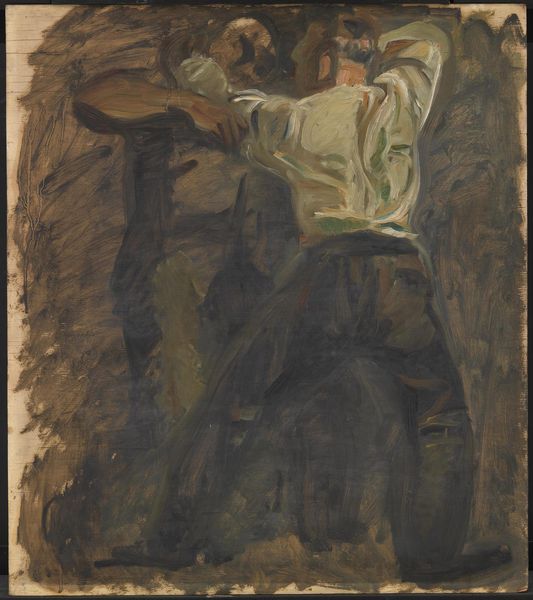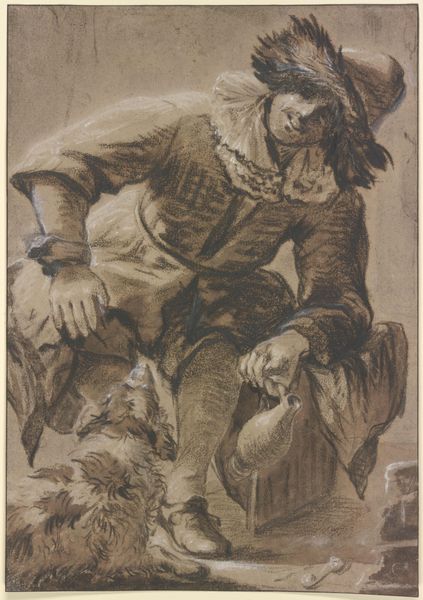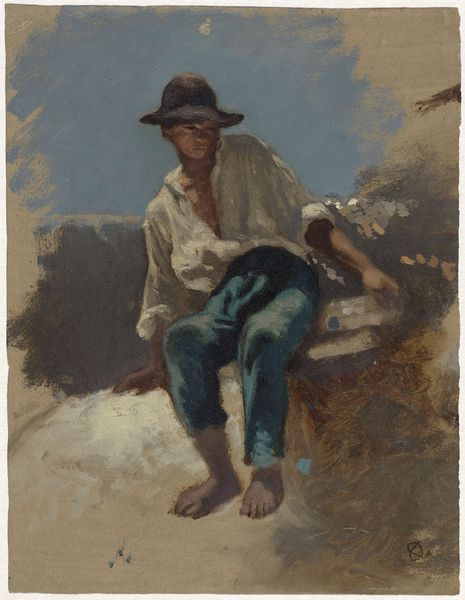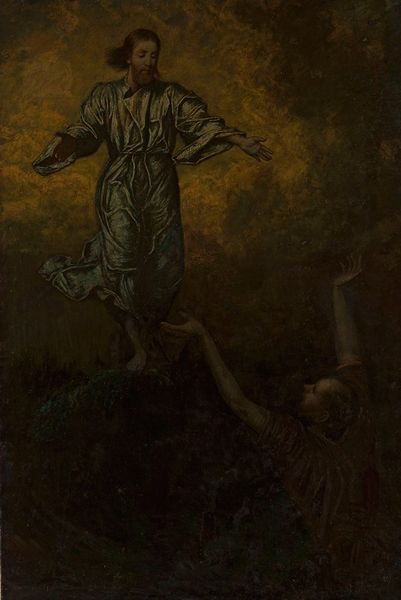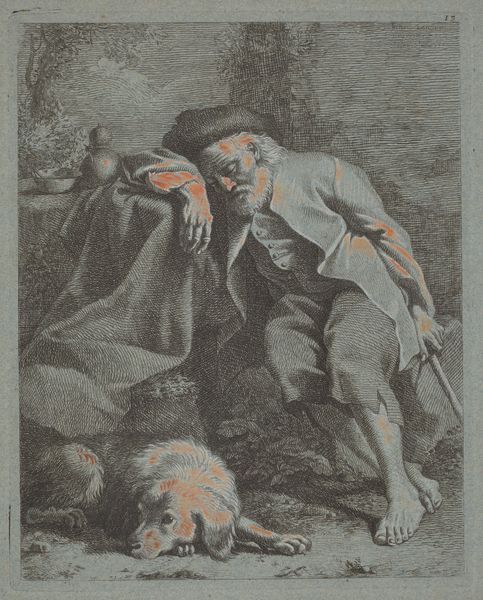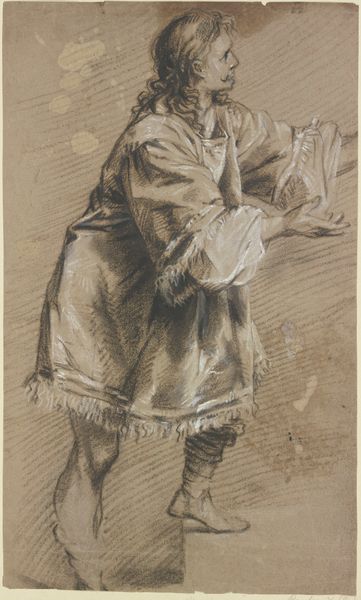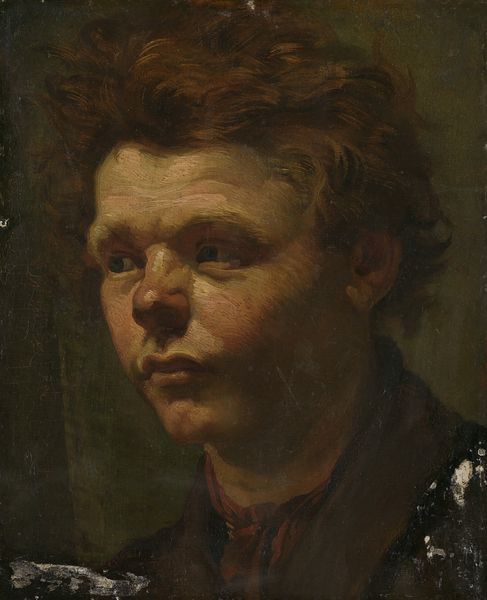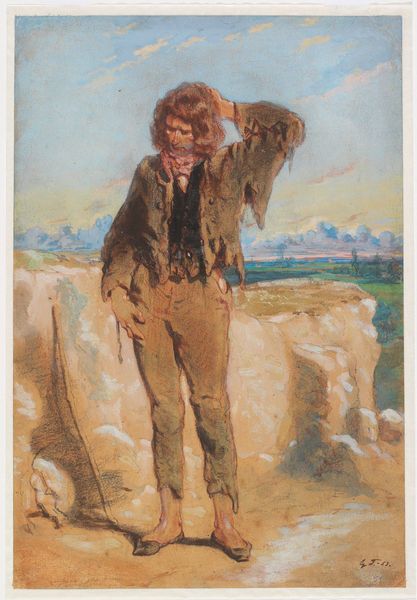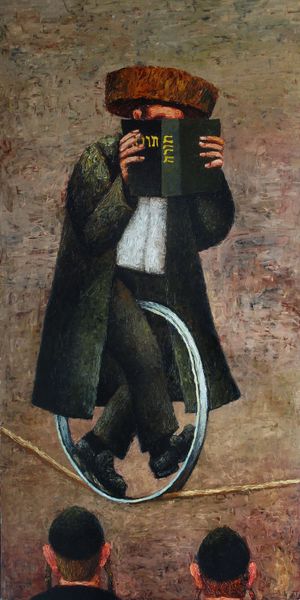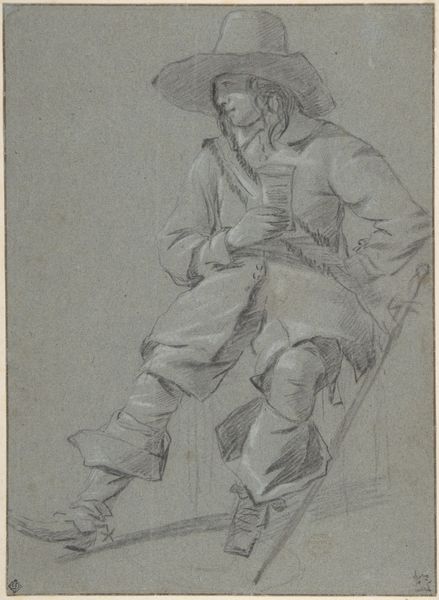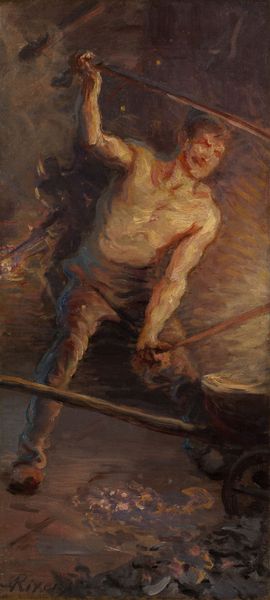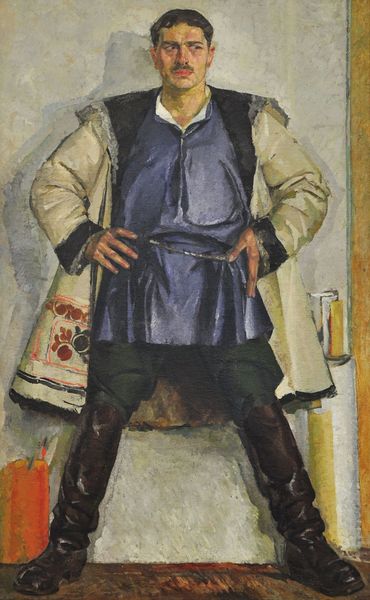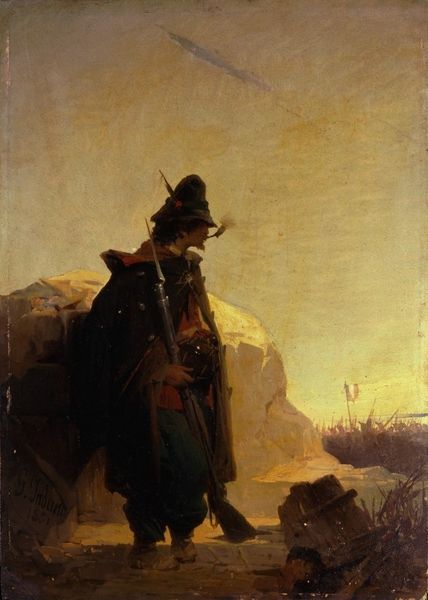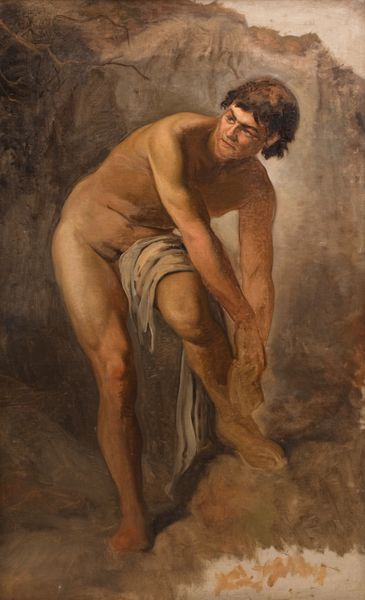
oil-paint
#
portrait
#
figurative
#
oil-paint
#
oil painting
#
romanticism
#
realism
Copyright: Public Domain: Artvee
Editor: Here we have Gustave Courbet's self-portrait from 1844, rendered in oil paint. The figure strikes a pose against a somewhat indistinct landscape. There's a theatricality to the piece; his expression feels a little melancholy or perhaps pensive. What symbols or deeper meanings do you find in this image? Curator: Immediately, the tension between Romanticism and Realism comes to mind. The cape, the loose, almost Byronic shirt…these are nods to a romantic past. But the direct gaze, the unidealized features, point toward a new artistic honesty. What does that directness evoke for you? Editor: I suppose a rejection of the embellished self-portraits of the past. A sort of "this is me." But the cape hints at wanting to be something...more? Curator: Exactly. Courbet, I think, understands the power of both approaches. The cape becomes not just fabric, but an emblem of the artistic persona. The exposed hand seems to gesture almost violently with its display of tendons. Do you feel that energy? Editor: Yes! It's a contrast to the dreamy background. Is the cape there to imbue him with power, to legitimize him, despite the rise of Realism? Curator: Perhaps. Or to comment on the artist's self-fashioning, their deliberate construction of an image. It begs us to question whether the pursuit of "truth" in art is ever truly objective. Do you think that even realism contains artifice? Editor: I suppose you can't help but frame reality through your own perspective. The very act of painting is an intervention. That tension is really captivating now. Thanks for pointing that out! Curator: Indeed! By recognizing that symbolic dialogue, the artist seems more knowable, don't you think?
Comments
No comments
Be the first to comment and join the conversation on the ultimate creative platform.
